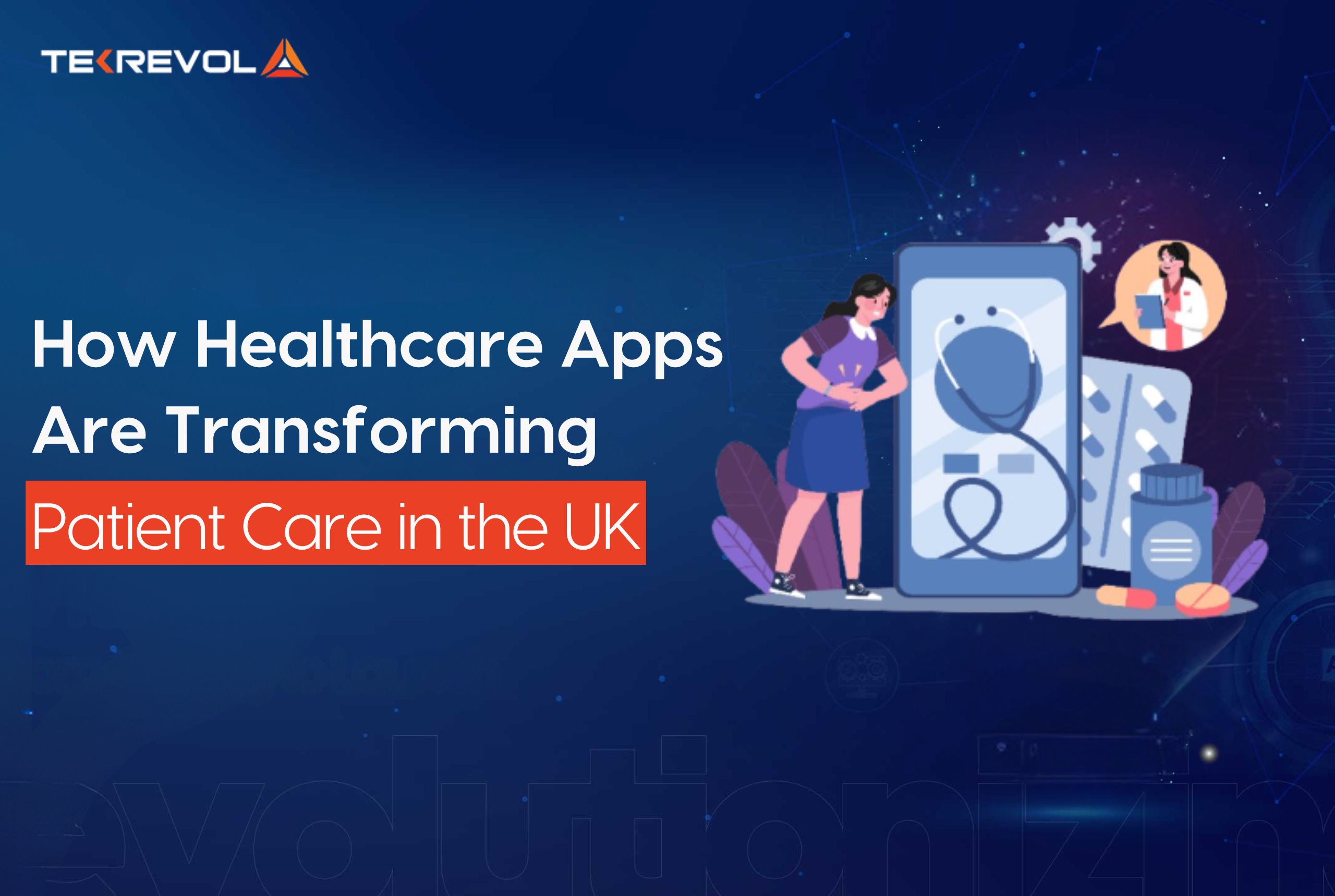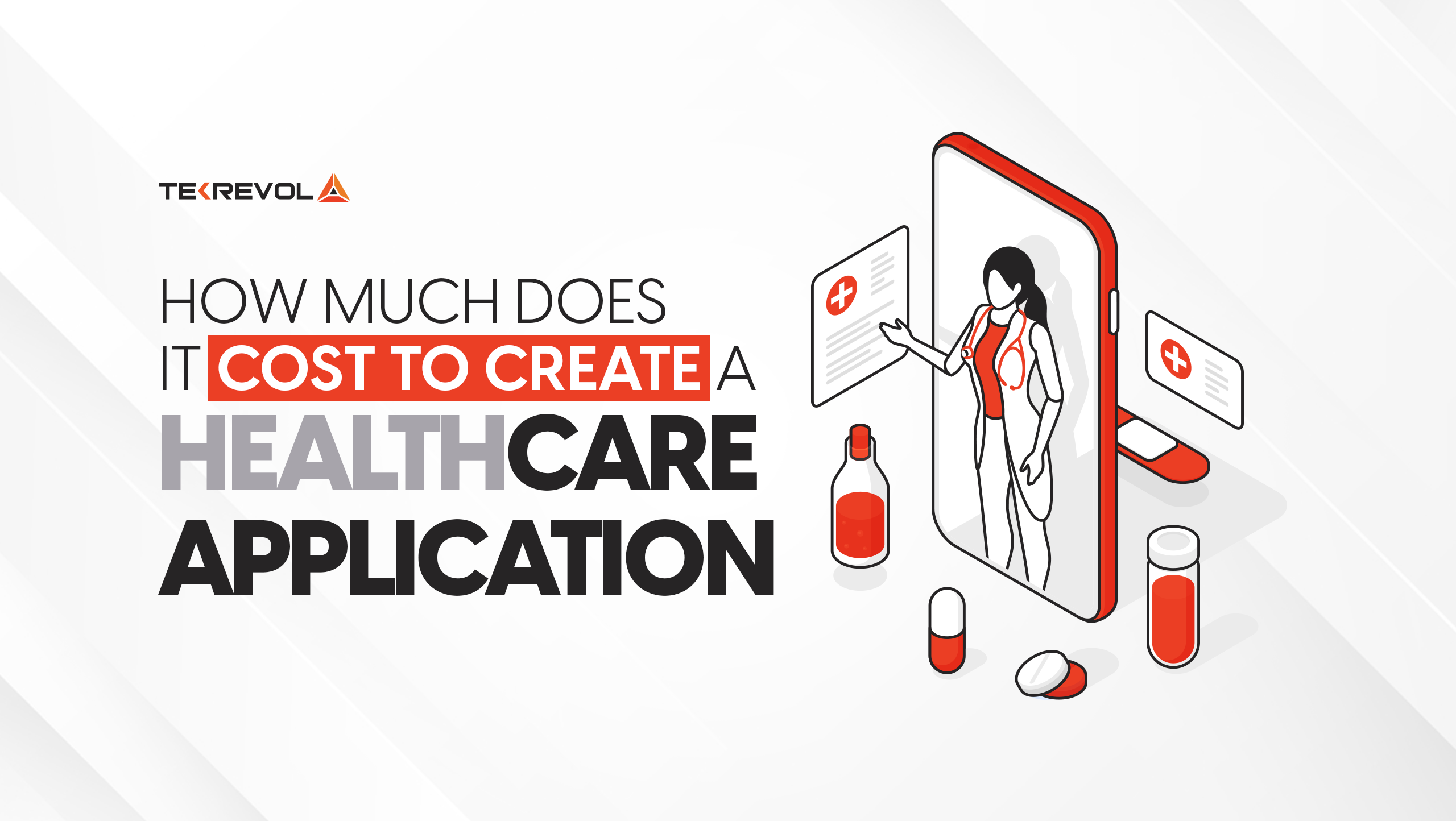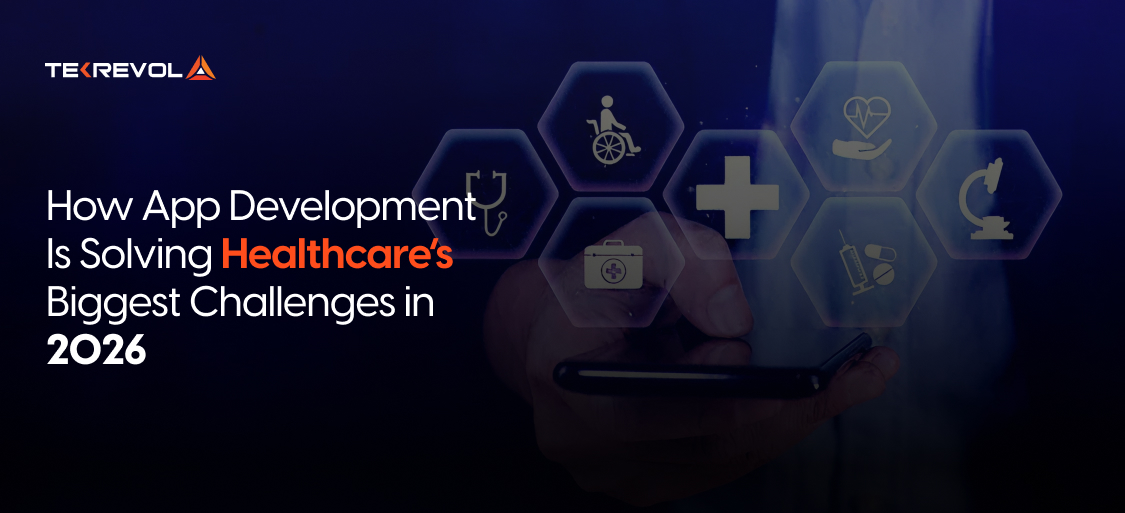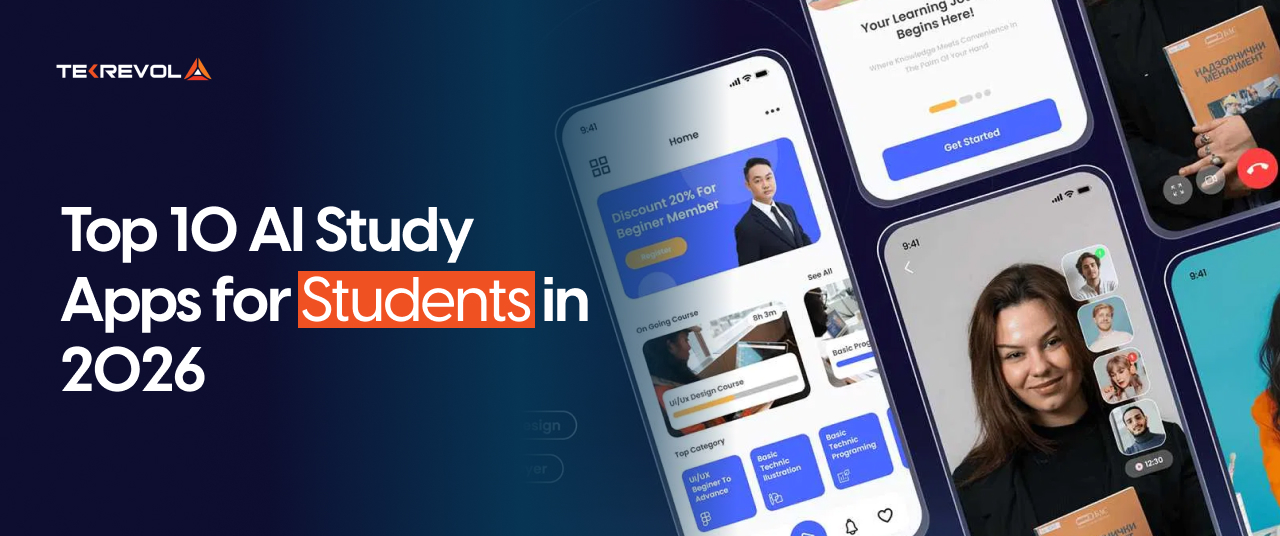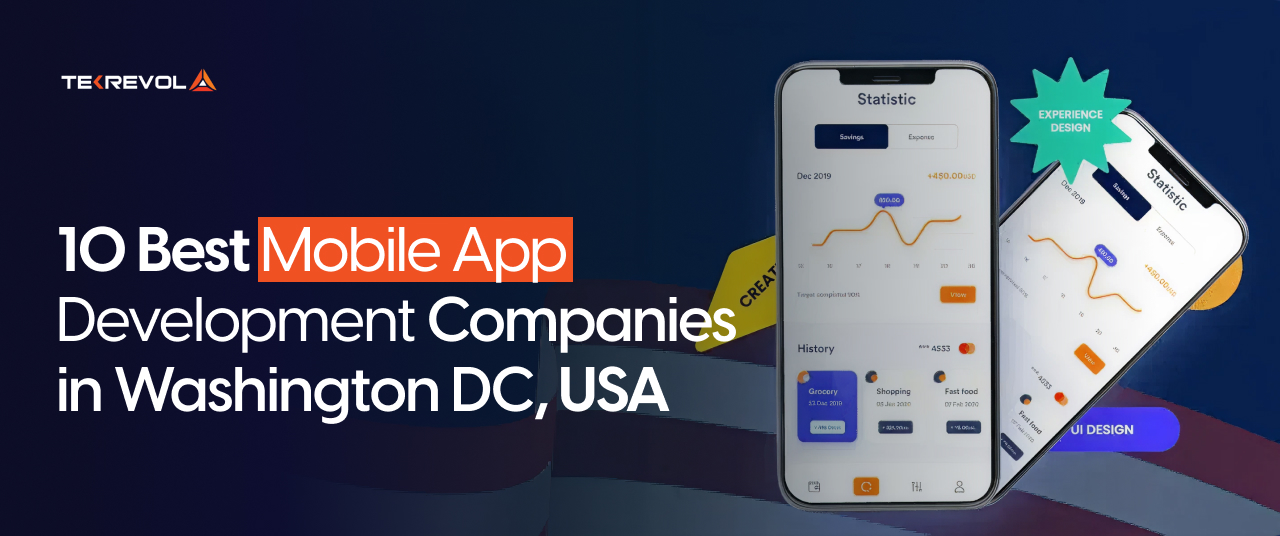Imagine no more waiting rooms, endless phone calls, or confusing appointment systems, just instant, personalized care at your fingertips. Sounds ideal, right? That’s exactly what patient care mobile apps are making possible across the UK. But beyond the convenience, the real question is: How deeply are these healthcare technologies reshaping how patients experience care today?
With the rise of mobile health apps and nearly 30% of UK adults using them regularly, digital healthcare is clearly more than a passing phase. From checking symptoms to scheduling appointments and getting mental health support, these apps are turning our phones into trusted health companions.
As healthcare apps become increasingly embedded in daily life, the question arises: how are they truly improving care in the UK? Insights from a leading healthcare app development company reveal the innovations that are making a real impact on patient outcomes and clinical workflows.
What Is a Healthcare App?
One of the most easy and preferable digital health solutions is a healthcare application that allows people to gain control over their health and well-being through smartphones. From booking appointments for the NHS, refilling a prescription, joining a virtual therapy session, or tracking chronic conditions-the healthcare apps really change the way people in the UK engage with services for health.
These are not just convenient applications; they offer freedom to the patients. Users do not have to wait for days to see the doctor or to stand in long queues at the pharmacy. With just a few taps, they can complete their relevant health tasks.
From the provider’s end, doctors and clinicians are now able to use tools to offer personalised care, monitoring of patients from afar, and collaborative care with specialists across the country and the globe.
This change is part of a much larger trend toward digital health solutions, which sees technological solutions used to improve ease and efficiency, take some pressure off the NHS, and offer speedier and more customized care experiences.
Healthcare Apps in the UK: The Numbers Speak Volumes
- In 2023, approximately 75% of adults in England were registered users of the NHS App, reflecting a significant increase in digital health engagement compared to previous years.
- The United Kingdom Digital Health Market is expected to reach USD 15.46 billion in 2025 and grow at a CAGR of 18.96% to reach USD 36.84 billion by 2030.
- The UK is among the top ten countries across the world in mobile adoption of health technologies, as per industry information.
Top Ways Healthcare Mobile Apps Are Transforming Patient Engagement
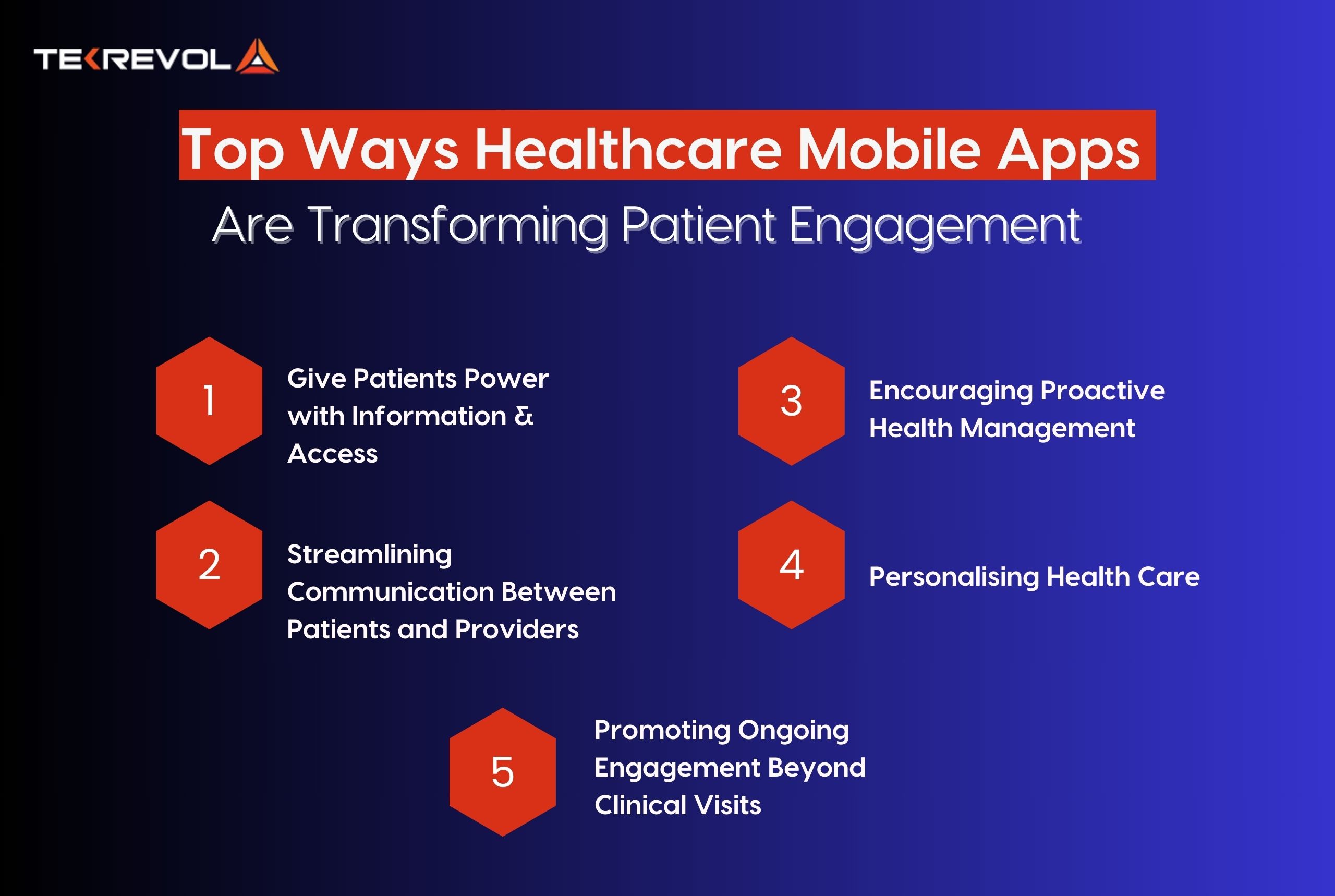
Making patient engagement a part of healthcare is no longer a trend but a necessity. With patients taking an increasingly active role in health management, mobile health care apps are now important tools to drive their engagement and enhance communication and health outcomes. Below are examples of how apps make a difference:
1. Give Patients Power with Information & Access.
The patient-controlled medical records, lab results, prescriptions, and appointment details provided by healthcare apps empower patients. This openness increases patients’ trust and motivates them to take charge of their health.
Example: The NHS App allows users to view their health records, check on symptoms, access test results, and order repeat prescriptions. These outdated immediate access would have prevented patients from calling clinics for basic information or wasting time travelling there. Most importantly, all these make Patients informed and proactive about their health.
2. Streamlining Communication Between Patients and Providers
Mobile apps facilitate easy and secure exchanges between patients and healthcare professionals, leading to coordinated care and just-in-time response to health issues.
Example: MyChart—a worldwide healthcare application used in the UK—lets patients communicate through secure messaging functions for queries and medication, and clinical follow-ups. Moreover the app helps reduce the need for extra clinic appointments by providing consistent communication methods.
3. Encouraging Proactive Health Management
A unified health application that includes both medication tracking and wellness challenges, daily check-ups and symptom monitoring systems helps patients maintain regular health engagement throughout the day.
Example: Medisafe stands as a well-used medication management application which alerts users when to take their drugs and tracks their medication usage history.This is very useful for many chronic conditions, such as hypertension or diabetes.
4. Personalising Health Care
Health care applications which utilise AI and user data deliver personalised health recommendations alongside lifestyle information while pushing targeted “nudges” and tailored suggestions based on individual health needs.
Example: The Liva Healthcare platform, endorsed by some NHS trusts, offers personalised coaching and resources to patients with lifestyle-related conditions like Type 2 diabetes. The app tracks user behaviour and gives feedback through targeted insights to help support continued change of habit.
5. Promoting Ongoing Engagement Beyond Clinical Visits
With frequent check-ins, virtual support, and instructional materials, mobile health solutions improve long-term health journeys by keeping patients involved long after they leave the clinic.
Example: Headspace, although not strictly medical, has gained significant use via NHS frameworks for mental health support. The app’s guided meditations and mindfulness exercises engage and support users in between therapy sessions or GP visits.
Is your healthcare app idea ready for the next step?
We help you validate, design, and launch it with industry-best practices.
Book A Free Consultation Now!
Smart Mobile Features That Bridge the Gap Between Patients and Providers
Mobile health apps are transforming the patient experience, giving users more control while also enabling healthcare providers to streamline care delivery processes. Here, we have listed the features making this possible:
1. Effortless Scheduling & Communication
Patients can schedule their appointments, check in, and request prescription refills with a few simple taps. This saves time and improves satisfaction. With automatic scheduling and communication, healthcare providers are relieved from these mundane tasks as they get to focus on the important aspects of care delivery.
2. Provider Search Tools
Finding a trusted provider used to be a daunting task. In mobile apps, an inbuilt search tool allows patients, usually from the comfort of a central, secure patient portal, to search for available healthcare professionals in their insurance network, view their profiles, and make informed choices.
3. Remote Patient Monitoring (RPM)
People with diabetes and high blood pressure, or heart disease,, could track their vital signs, which they would send automatically in real time to their healthcare providers. This system allows for prompt medical interventions while helping identify problems before they become severe, thus reducing the need for numerous face-to-face appointments for disease management.
4. Clinical Trial Support
The mobile app, which streamlines data collection and patient recruitment, has breathed new life into clinical trials. The participants can log their symptoms, receive updates, and communicate with trial coordinators via their phones. This enhances retention and enables researchers to advance through trial phases swiftly.
5. Medication Reminders & Prescription Alerts
Forgetfulness is something we are all guilty of sometimes, especially when it comes to taking our meds daily. This is why patient care mobile apps help patients stick to taking their medications with reminders and alerts for requesting refills. Some of them even offer safety information on drug interactions, along with messaging providers for prompt clarification.
6. Virtual Appointment/Telehealth Access
Follow-ups to mental health sessions are seamless through mobile apps. Patients can obtain healthcare services, including consultation appointments and diagnoses, and prescription delivery, remotely through video technology. The virtual platform enables doctors to reach clients who do not have easy access to healthcare services, including people in distant locations and those dealing with mobility limitations.
Trends That Are Changing the Way Patients Use Healthcare Apps
As the field of healthcare takes steps to become more digitally oriented, innovative technologies have become more involved in the management, monitoring, and prediction of patient health. The following are three of the most prominent innovations:
1. Artificial Intelligence in Healthcare Apps
AI is not replacing healthcare professionals; it is becoming the professional’s new best companion. Machine learning algorithms are being implemented in apps to analyse user behaviour, predict possible health risks, and offer personalised recommendations. AI in healthcare is quietly helping to increase the accuracy and speed of early interventions, from virtual symptom checkers to smart triage systems.
2. Wearables That Deliver Real-Time Health Insights
Smartwatches, biosensors, and wearables such as ECG monitors are no longer simply fitness trackers. Coupling these devices with mobile health apps allows physicians 24/7 access to patients’ vital signs and activity data. This way, clinicians get to understand patients’ health in the right context, improving the accuracy of diagnosis and personalisation of treatment plans far beyond the clinic.
3. Predictive Healthcare with Machine Learning
Mobile health receives a transformative shift through predictive analytics applications. The software tools will analyse patient data patterns to generate alarms that identify early indications of severe conditions, including heart attacks and diabetes complications and respiratory issues. This will allow providers to intervene before an emergency, thus guaranteeing improved health results and minimising related long-term costs.
Leading Patient Engagement Apps in Modern Healthcare
The advancement of technology into mobile health has taken patient engagement to a whole new level, thus bringing patient empowerment to better outcomes and quality relationships with providers. Here are some engaging patient apps with wide applications that have made a difference:
1. Clinical Communication Tools
Modern healthcare teams require fast, safe, and seamless communications. Currently, clinical messaging applications are becoming more comprehensive: real-time video calls, voice calls, secure messaging, or even group discussions help to coordinate care more rapidly and efficiently for doctors and nurses.
2. Medical Calculators for Doses and Diagnosis
Mobile dosing calculators are very important to health care providers, especially since, in most cases, the aspect of accuracy is very critical. One patient’s specific variables, such as weight, age, and state, determine reliable dosing recommendations based on well-set medical formulas, which such apps deliver.
3. Symptom Checker or Disease Management Tools
Symptom checkers help patients determine whether they should visit their doctors. Apps are also beneficial in disease monitoring, adherence to taking medication, and remote coaching on the provider side. For example, one of the AI-powered diagnostic applications is SkinVision, which helps the user identify early signs of skin cancer.
4. Drug Reference Apps
Most of the time, healthcare professionals refer to drug reference apps to seek more updated information regarding medications/their uses, side effects, contraindications, interactions, and finally, prices. This helps in reducing errors and consequently increases the amount of accuracy in prescribing by the practitioner while on the go.
5. Patient Education & Peer Support
These mHealth apps educate patients about various issues, starting from diagnosis, exploring treatment options, and providing preventive care tips. Some advanced apps like TalkLife provide much more personal sharing and connection between users who have the same health experiences and facilitate emotional support.
6. Mobile Telemedicine Platforms
By far, the most amazing features of mobile health are the telemedicine services that allow patients with doctors’ appointments seamlessly and remotely from wherever they are, thanks to built-in video conferencing. This is critically important to be able to serve more rural patients or those who are unable to move.
How Tekrevol Can Help You Build a Healthcare App in UK
TekRevol is a leading Mobile App Development Company UK, specializing in creating state-of-the-art healthcare applications that enhance patient experiences and streamline provider workflows. We focus on delivering digital solutions trusted by patients and leveraged by healthcare organizations to improve efficiency and care quality.
Having developed successful apps such as “Kinekt” and “Your Nurse,” TekRevol has proven its expertise in creating secure, scalable, and impactful digital health solutions. More recently, we have developed a voice-enabled health monitoring app that delivers real-time wellness insights and personalised assessments-empowering users to control their health confidently.
Through years of industry experience and creative thinking, our team has mastered the art of building apps that are both engaging and functional. TekRevol will work with you to realise your dream, whether you are starting a new healthcare platform or looking to reshape an existing one.
- Need a digital partner for your healthcare app idea?
- We help you design, develop, and deploy a healthcare app that truly makes a difference.

